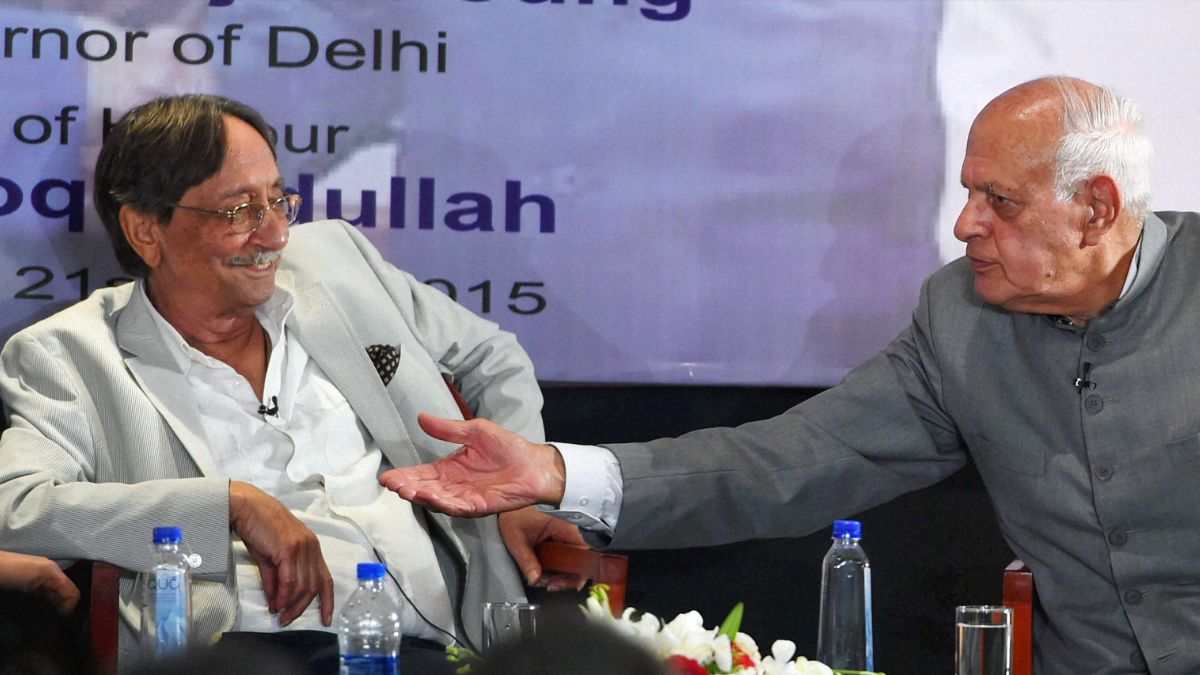Did Farooq Abdullah ‘secretly support’ Article 370 abrogation? Ex-RAW chief Dulat’s book stirs political row
 (File) In this 2015 file photo, Farooq Abdullah interacts with A.S. Dulat during the book release of ‘Kashmir The Vajpayee Years’ in New Delhi | PTI
(File) In this 2015 file photo, Farooq Abdullah interacts with A.S. Dulat during the book release of ‘Kashmir The Vajpayee Years’ in New Delhi | PTI
Former RAW Chief A.S. Dulat has stirred a political storm with revelations in his new book The Chief Minister and The Spy, claiming that National Conference (NC) President and former Jammu and Kashmir Chief Minister Dr Farooq Abdullah “secretly supported” the abrogation of Article 370.
The claim raises the question: Did the NC President support the BJP-led government’s move to strip Jammu and Kashmir of its limited autonomy in 2019?
According to the book, written by Amar Singh Dulat, a former Research and Analysis Wing (RAW) head and a long-time friend of Abdullah, Abdullah publicly called the abrogation “a betrayal” but held a nuanced private view. Dulat writes that Abdullah told him, “We would have helped. Why were we not taken into confidence?”
The book focuses on events leading up to the abrogation of Article 370 on 5 August 2019, when Jammu and Kashmir was also bifurcated into two Union Territories—Jammu and Kashmir, and Ladakh.
A day before the move, Dr Farooq Abdullah, his son Omar Abdullah, and NC MP Hasnain Masoodi met Prime Minister Narendra Modi in Delhi. The Abdullahs later claimed they had asked Modi whether the government was planning to abrogate Article 370, but the Prime Minister did not give any clear response.
After the abrogation, Abdullah, Omar Abdullah, and dozens of political leaders and workers were placed under preventive detention in Jammu and Kashmir.
In an interview, Dulat recalled visiting Abdullah during his detention at his residence on Gupkar Road in Srinagar, after receiving permission from officials in Delhi. He said he had lunch there, prepared by Abdullah's British wife.
Dulat’s revelation has drawn sharp criticism from political leaders in Kashmir. People's Conference (PC) President and Handwara MLA Sajad Gani Lone said he was “not surprised” by the claim and suggested he had always suspected a tacit understanding.“Dulat sahib has revealed in his upcoming book that Farooq sahib privately supported the abrogation of Article 370. Coming from Dulat sahib makes this revelation very credible... Virtually his alter ego.”
He accused the NC of playing the ‘victim card’. “The August 4, 2019, meeting of CM sahib and Farooq sahib with the PM was never a mystery for me,’’ he said. “I can visualise Farooq sahib saying—‘Humey roney deejiye—Aap apna kaam karein—Hum aap kay saath hain.’” Lone also mocked the NC’s behind-the-scenes rapport with the BJP.
People's Democratic Party (PDP) leader Iltija Mufti echoed the scepticism, claiming the book confirmed long-standing doubts. “Dulat sahab, an ardent Abdullah supporter, has shared how Farooq sahab agreed with Delhi’s illegal move of abrogating Article 370,” she wrote on X.
She criticised Abdullah for choosing to remain in Kashmir rather than attending Parliament at a critical moment. “With this, it’s clear that Farooq sahab chose to stay in Kashmir instead of the Parliament to help normalise the gutting of J&K’s constitution and subsequent betrayal,” she said.
National Conference’s chief spokesperson Tanvir Sadiq rejected Dulat’s claims, pointing out ‘contradictions’ within the book. “If you look at the book and what he writes in it, he contradicts his own words. He writes that the Government of India waited for seven months to see Farooq Abdullah Sahib’s reaction when he was in custody,” Sadiq told a new agency.
He said Abdullah’s actions after his release disproved the claim.“If that was the case, then why did he promote the PAGD (People’s Alliance for Gupkar Declaration), a coalition of regional parties for the restoration of Article 370) after coming out?”
The controversy has reignited debate over political alignments and the events surrounding the revocation of Jammu and Kashmir’s special status, a moment widely seen as one of the most significant constitutional changes in the region’s recent history.
India